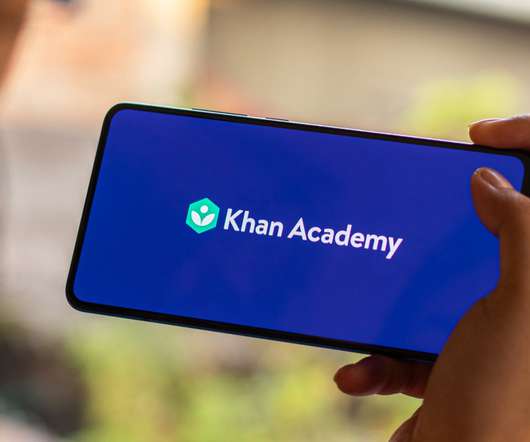Khan Academy Wants to Make 'Mastery Learning' Mainstream. Will Partnering With Schools Help?
Edsurge
DECEMBER 1, 2021
A big idea driving Khan Academy is a belief in “mastery learning”—that students should show proficiency in one set of materials before moving on to the next. The nonprofit’s latest push to make mastery learning mainstream involves partnering with school districts who adopt Khan Academy’s materials and platform.















Let's personalize your content